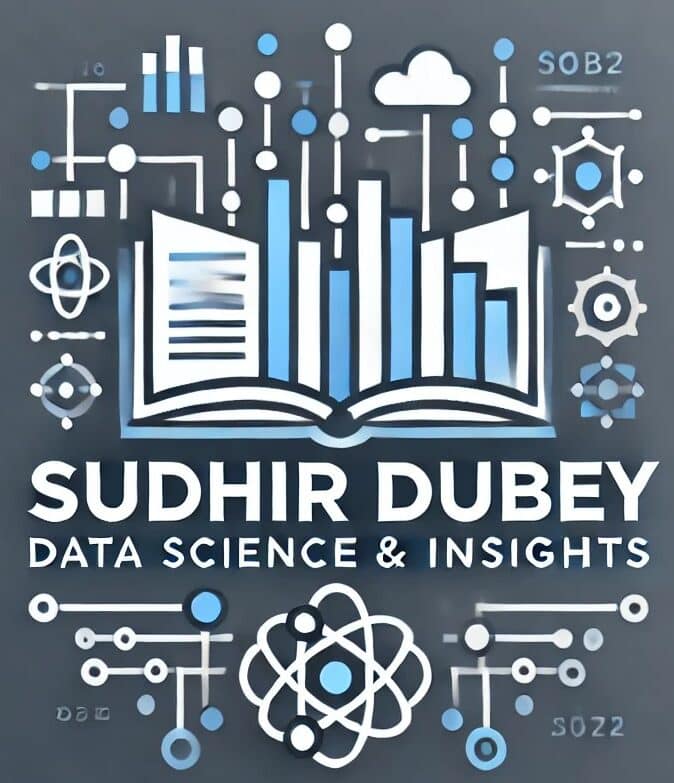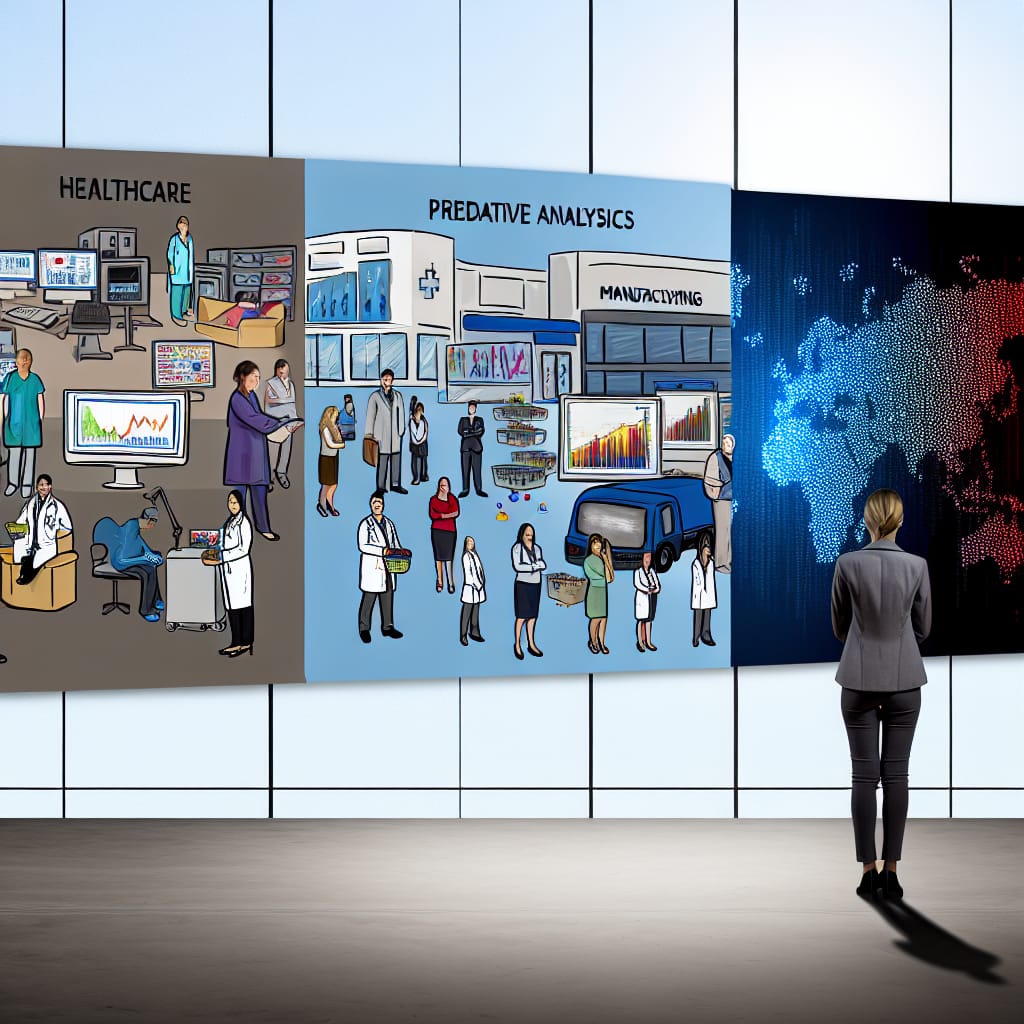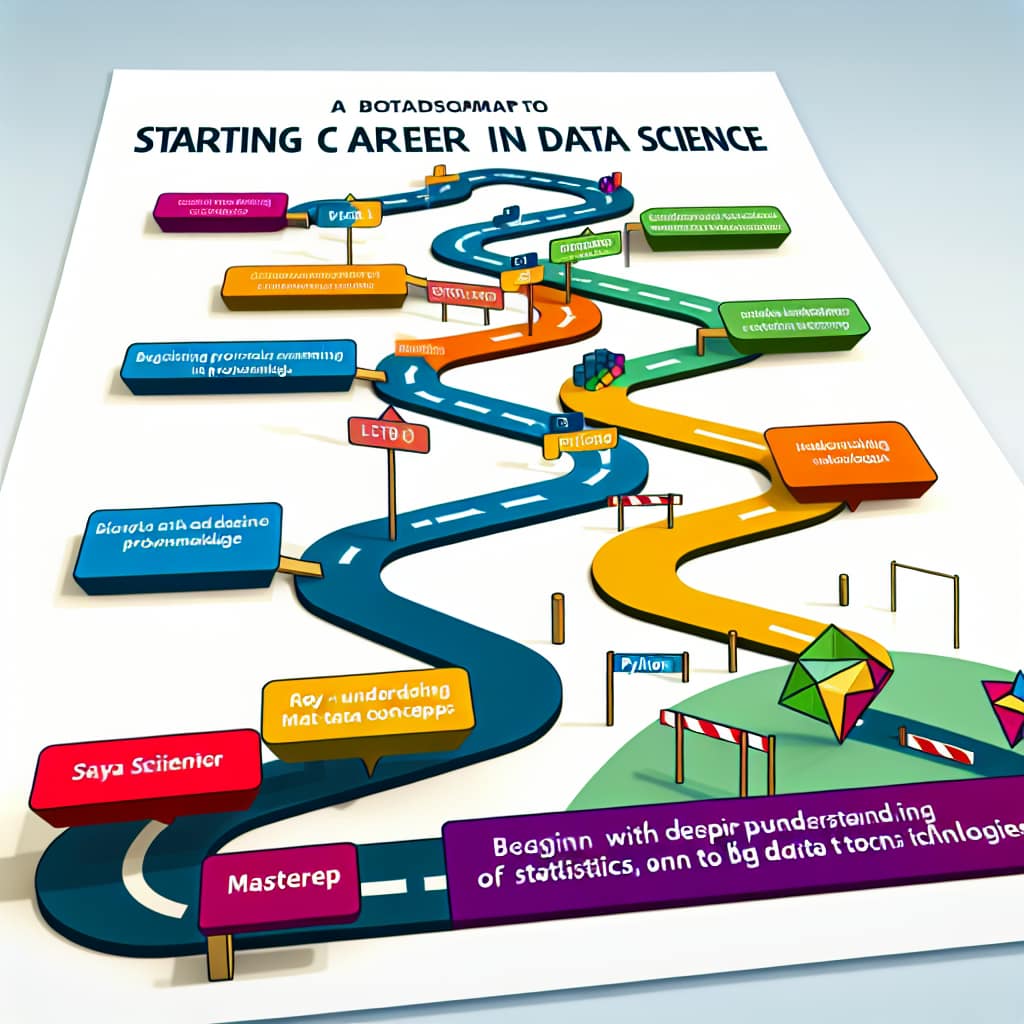Predictive Analytics: 7 Advanced Applications Transforming Industries in 2025
In the rapidly evolving field of data science, predictive analytics stands as a pivotal tool for businesses aiming to make proactive data-driven decisions. As we look toward 2025, the integration of predictive analytics within industry analytics promises to revolutionize how companies anticipate trends, manage resources, and optimize operations. This article delves into the essential applications of predictive analytics across various industries, offering insight for AI professionals, data scientists, and enthusiasts eager to harness its potential. We will explore the most impactful advancements, provide compelling examples, and highlight future trends that are set to redefine the landscape.
Table of Contents
Transforming Retail Strategy
In the retail sector, predictive analytics has become indispensable. By analyzing historical sales data, consumer behavior, and market trends, retailers can forecast demand with precision. This ensures inventory is stocked optimally, reducing the risk of overstocking and stockouts. A real-world example is Walmart, which uses predictive analytics to enhance its supply chain management and improve customer satisfaction.
Internal factors, such as seasonal variations, and external influencers, including economic shifts, are seamlessly integrated into predictive models. This holistic approach empowers retailers to refine personalized marketing strategies, expected to increase customer retention rates substantially.
Revolutionizing Healthcare
Predictive analytics is revolutionizing healthcare through improved diagnostic accuracy and personalized treatments. By analyzing patient records, genetic information, and even socio-economic factors, healthcare providers can predict disease outbreaks and individual health risks.
Leading hospitals employ predictive models to optimize resource allocation and reduce patient wait times significantly. The adoption of predictive analytics in healthcare has proven effective in preventive care, as seen in the reduced readmission rates at Cleveland Clinic, showcasing its transformative potential.
Securing Financial Services
The finance industry leverages predictive analytics for fraud detection, risk management, and investment forecasting. With the ability to process real-time transactional data, banks can identify suspicious activities swiftly, protecting both the institution and customers.
Investment firms use sophisticated models to predict stock market trends, offering clients insightful portfolio management recommendations. Download our comprehensive guide on leveraging data analytics in finance [here](/guide-financial-predictive-analytics) to learn more.
Optimizing Manufacturing Processes
In manufacturing, predictive analytics enhances operational efficiency and equipment maintenance. Predictive maintenance models analyze machine usage patterns and forecast potential failures, minimizing downtime and maintenance costs. General Electric exemplifies this application, where analytics-driven insights play a crucial role in operational excellence.
Manufacturers also utilize these insights to improve supply chain logistics, balancing production schedules with demand forecasting, ultimately improving profitability.
Advancements in Transportation Logistics
Transportation companies incorporate predictive analytics to optimize routing, reduce fuel consumption, and enhance service delivery. Predictive models assess traffic patterns and weather forecasts to determine the most efficient routes, improving punctuality and safety. A formidable example is Uber’s use of analytics to dynamically adjust fare prices based on predicted demand peaks.
These advancements not only cut operational costs but also deliver enhanced user experiences, reinforcing customer loyalty.
Enhancing Energy Management
The energy sector utilizes predictive analytics to manage supply and demand, mitigate risks, and forecast outages. Companies like Siemens implement predictive models to enhance energy efficiency and transition towards sustainable energy sources. By analyzing consumption data and environmental conditions, companies can optimize energy distribution, reducing waste and ensuring grid reliability.
This proactive management is crucial for addressing the growing demands and sustainability challenges in the energy industry.
FAQs
What is predictive analytics?
Predictive analytics employs statistical techniques to analyze historical data and make probable future predictions, empowering decision-makers across industries.
Why is predictive analytics important?
Predictive analytics transforms raw data into actionable insights, helping businesses optimize operations, mitigate risks, and improve strategic planning.
How can my company implement predictive analytics?
Begin by identifying key business questions, then collect and cleanse data. Utilize predictive models and validate them against historical outcomes to ensure reliability.
Can predictive analytics improve customer experience?
Yes, predictive analytics forecasts customer preferences and behaviors, enabling personalized marketing strategies that enhance customer engagement and satisfaction.
Conclusion
Predictive analytics is integral to the evolution of industry analytics, offering unprecedented insights for strategic business decisions. As companies continue to navigate a data-rich environment, harnessing these advanced applications will remain crucial in staying competitive. Looking forward, expect predictive analytics to further incorporate AI innovations and expand its capabilities.
To delve deeper into how you can transform your business with data science, read our latest insights [here](/data-science-insights-2025) and stay updated with emerging trends.



